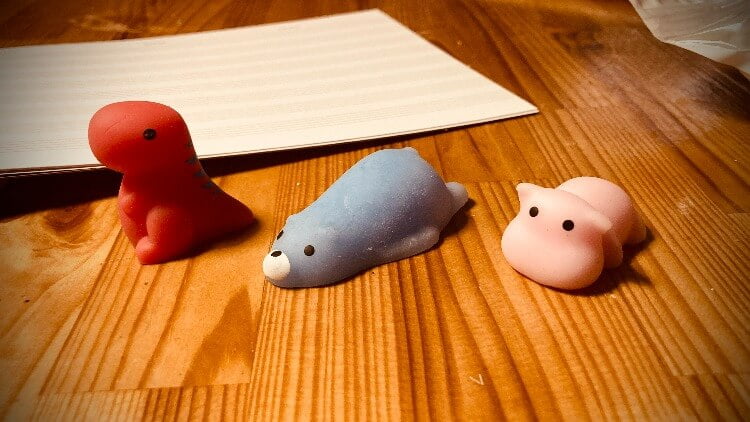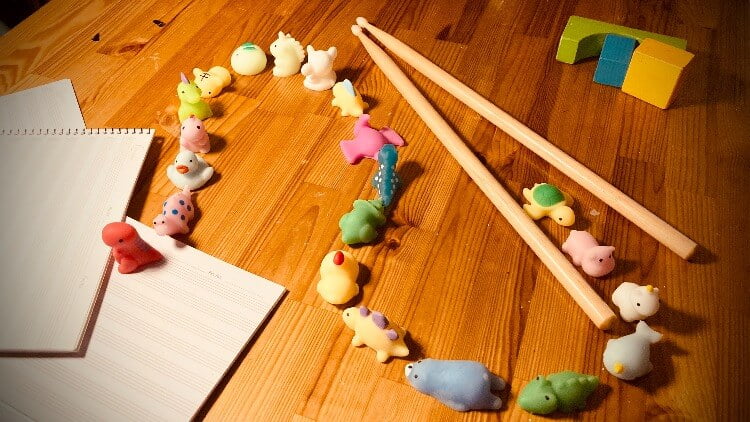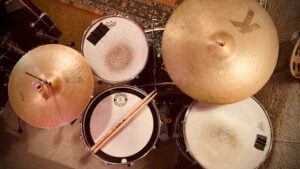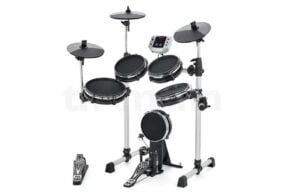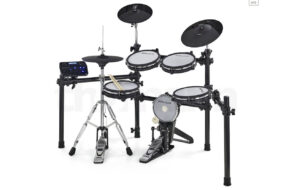Drum lessons for kids are a fun and exciting way to develop musical skills, coordination and creativity. Let’s discover the magic of music and its impact on creative development.
The Magic of Music: Drum lessons for children and their impact on creative development
Introduction
Childhood is a period of amazing growth and development, and music plays an essential role in this formative stage. Do you have a young music enthusiast at home? A future drummer eager to explore the rhythmic world?
Drum lessons designed specifically for kids are much more than music lessons; they are a gateway to a journey of self-discovery, creativity and personal development. In this in-depth exploration, we’ll break down why drum lessons can be a worthwhile investment in your child’s growth, and how this musical experience can leave a lasting mark on their life.
1. The Musical Adventure Begins:
Imagine your daughter’s or son’s eyes shining with excitement as they face real drums for the first time! The surprise to realize that, using the drumsticks, you can produce such curious sounds!
Drum lessons are your gateway to the exciting world of music and rhythm. By learning drum fundamentals, children explore a universe of sound where they can channel their emotions and creativity in unique ways.
2. Educational and Cognitive Benefits:
Behind every drumbeat is a valuable lesson in cognitive development. Drum lessons for children improve hand-eye coordination, strengthen memory, and refine the ability to listen and respond to rhythm. These skills are not only crucial in the world of music, but also have a positive impact on your academic performance and daily life.
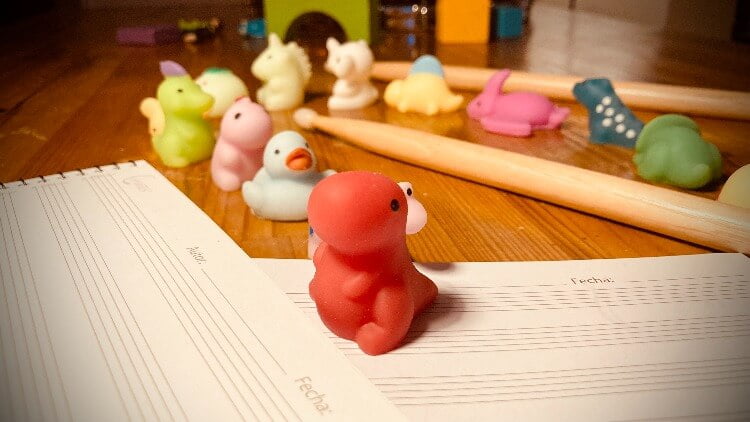
3. Promotion of Discipline and Structure:
The drums are an instrument that demands practice and patience. Through regular lessons, children learn the importance of discipline and structure. Establishing a regular practice schedule not only improves their musical skills, but also teaches them the value of dedication and consistent effort.
4. Motor Skills Development:
From coordinating your hands and feet to adjusting the intensity of your hits, playing the drums is a complete exercise for fine and gross motor skills. This physical development is essential in the growth stage, helping children to hone their dexterity and muscle control.
5. Creativity in Full Deployment:
Drum lessons unleash children’s creativity in unimaginable ways. As they master the basics, they can begin to experiment with their own rhythms and variations, creating their own unique style. This creativity extends beyond music and becomes an integral part of his approach to life.
6. Managing Frustration and Overcoming Challenges:
Learning to play the drums is not always an easy path. Children will face challenges and moments of frustration. However, this experience provides them with the opportunity to develop resilience and perseverance. They will learn to face challenges with determination, to persist despite frustration, and to celebrate every achievement, big or small.
7. Appropriate Ages to begin:
The recurring question is: when is the right age for a child to start playing the drums? In general, it is recommended from the age of 5 or 6. At this age, children usually have the coordination and attention span necessary to learn basic rhythm concepts and hitting techniques. However, each child is unique, and some may show interest and abilities before or after this age.
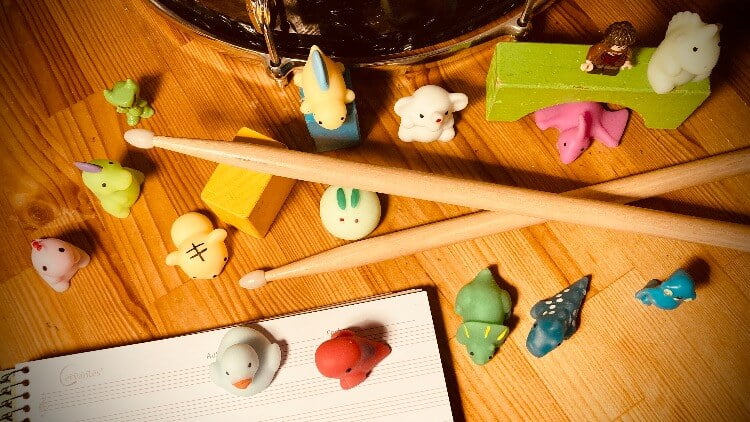
8. Specialized Teachers:
Drum teachers for kids are dedicated and caring teachers. They combine their love of music with teaching techniques that keep children engaged and motivated. They are trained to adapt to the unique needs of each child and create a positive learning environment.
9. Live performances to enhance confidence:
Participating in live performances, even small performances, can be a life-changing experience for children. These opportunities give them the confidence to face an audience and share their talent. This personal growth extends beyond music, empowering them in all aspects of their lives.
10. My approach to drum lessons for children:
With most of my younger students, I always try to approach drums and music in a playful way. Initially experimenting with the sounds of drums and other percussion instruments, and, for the technical part, the use of small children’s toys that facilitate coordination. In this way we begin to generate rhythmic patterns that they interpret first by imitation and then by reading simple rhythmic figures with which they gradually become familiar.
Little by little I am sending small tasks for them to do at home and thus begin to build the habit of practicing the instrument.
When there is already some ease and ease in the repetition of patterns, we add the work on simple songs (usually by well-known bands) to add the notion of musical structures.
I often use my guitar to play songs and structures with my students, so that they begin to experience what it is like to play with another person in a mock band.
In short, in the classes I try to create an appropriate framework within which my students can learn, enjoy, create and connect with drums and music in a fun, challenging and effective way.
Conclusion:
Drum lessons for kids are an investment in their future that goes beyond music. These lessons not only cultivate musical skills, but also nurture your daughter’s or son’s creativity, discipline, resilience, and confidence.
By immersing themselves in the world of drumming, children discover their unique voice in the world of music and gain essential tools to thrive in life. So if you are looking for an enriching experience that nurtures your child’s potential, drum lessons are the way to unleash the magic of music and emotional growth in your life!
